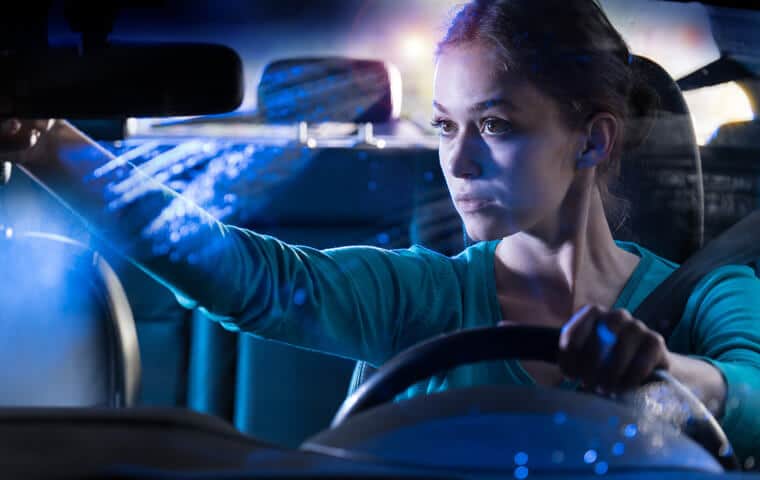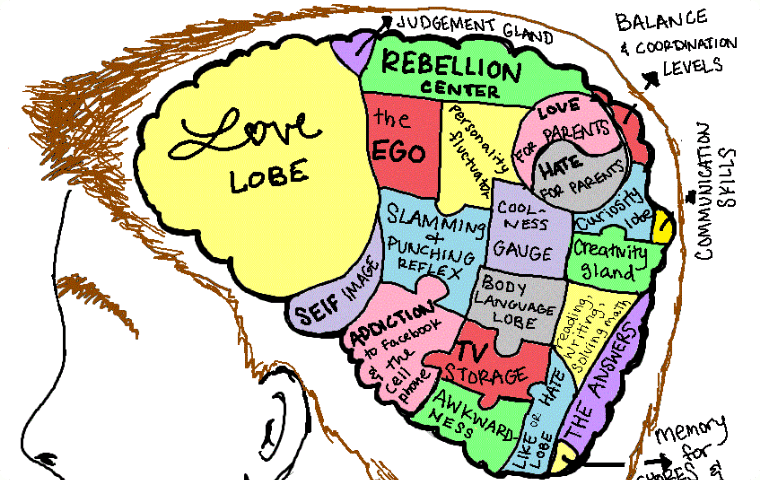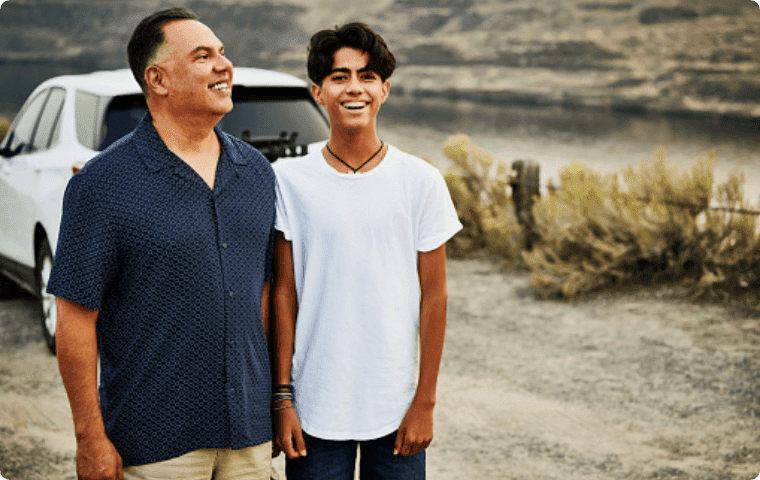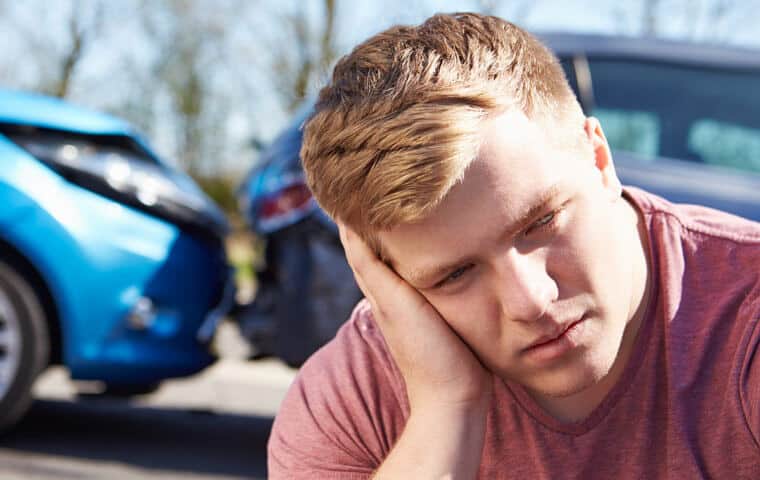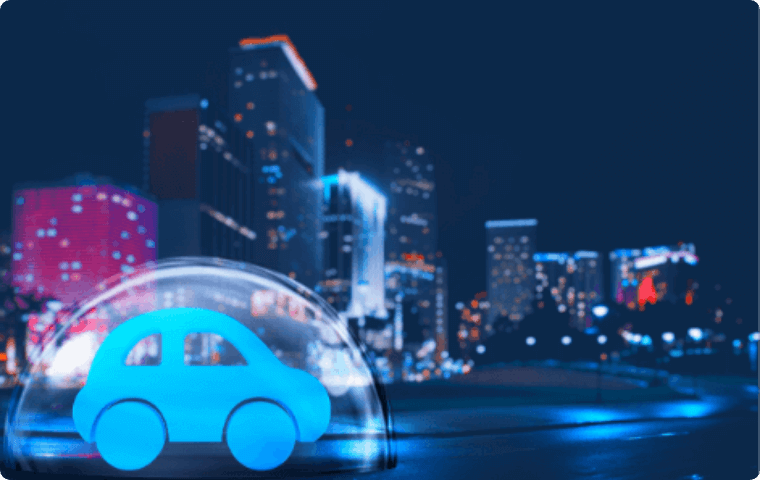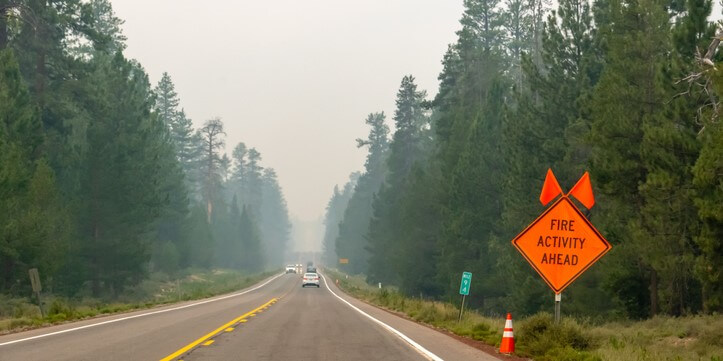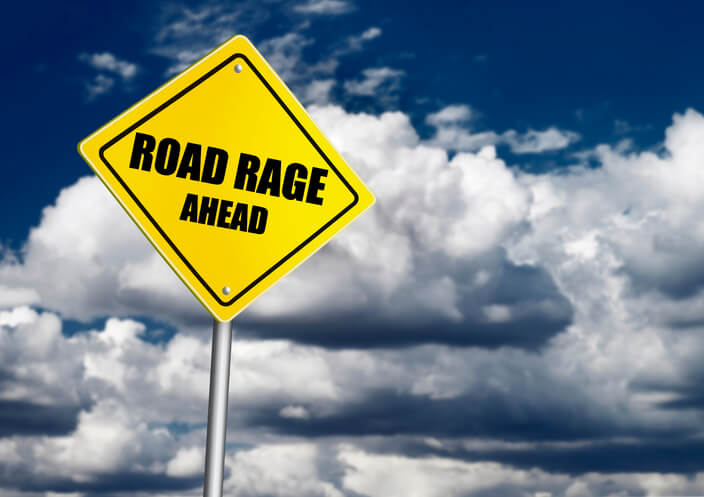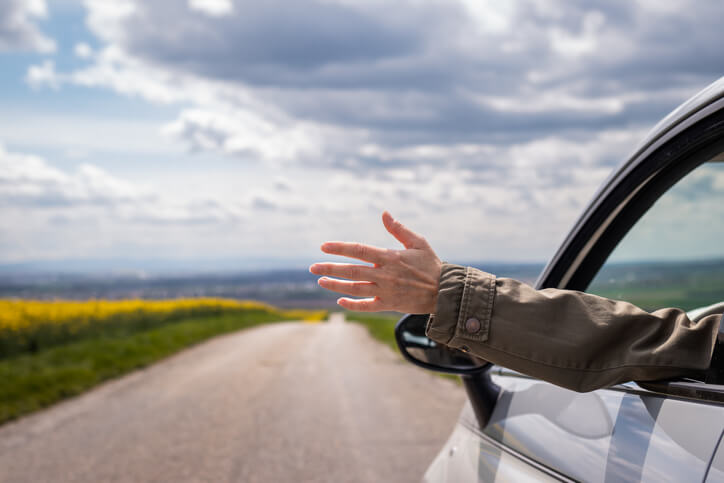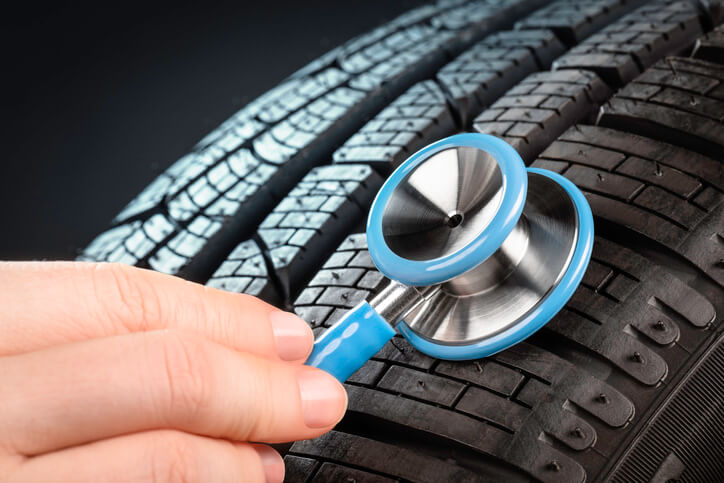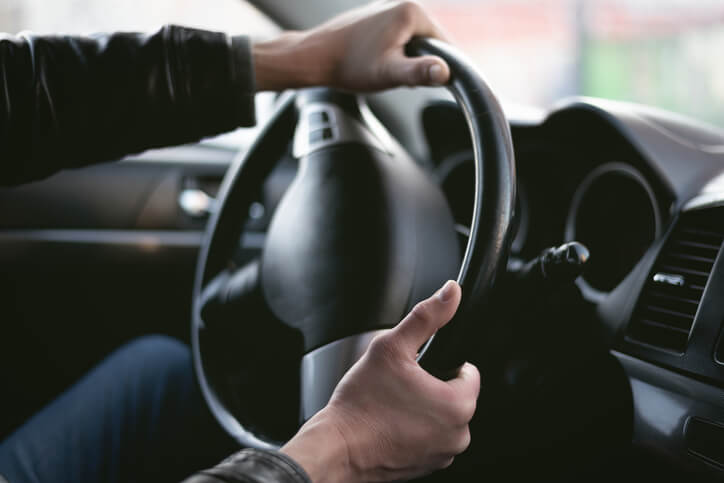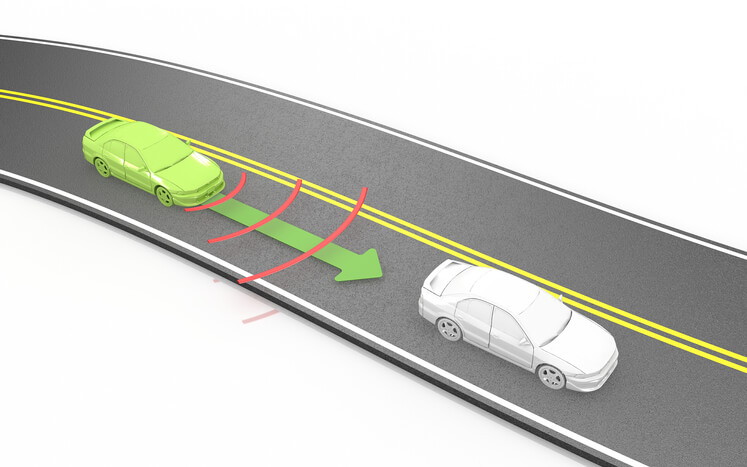Parents and teens may wonder how to stay safe when traveling alone at night, especially in an unfamiliar place. What precautions should you take? What should you carry in your vehicle? What do you do if you're being followed or harassed? What if a police officer pulls you over?
Dealing with the dangers of night driving
Nighttime driving presents special hazards. Obviously, it’s harder to see, which affects situational awareness. But personal safety is a huge issue, especially for women, who may have a higher chance of being targeted both in and out of their vehicles.
Here are some tips:
- Have a plan and communicate where you’re going to be. Many of the worst crashes that teens have are during “aimless drives” – meaning joyrides that don’t have a fixed destination. As a teen, you might really hate being monitored, but it’s safer for everyone to know generally where you may be driving or traveling as a passenger, especially with others. Agreeing to a plan is important, and parents may want to use a telematics app to track their children’s location, especially if an emergency happens and help needs to be called.
- Stay aware of your environment and surroundings. When you’re with friends, it’s super-easy to get distracted and not realize what’s happening around you, or even not know literally where you are and how you got there. Prioritize safety and stay aware of anything amiss or potentially risky.
- Use common sense – and trust your gut instincts. If a neighborhood doesn’t feel safe, or looks sketchy, stay away, get out, and don’t linger.
- Try to park in well-lit places close to an entrance, exit, or elevator. Both you and your vehicle are more likely to be easy targets for personal attacks, break-ins, and theft if you park in dark, remote spots.
- If possible, have a friend or colleague with you. You’re less likely to be pursued or attacked if you’re not alone. Simple things like carrying pepper spray and knowing basic self-defense moves can also be helpful.
- Keep your head up, look alert, and project self-confidence, not fear. This is especially important for women. Keeping your head down, assuming a slouched posture, and avoiding eye contact may signal you as an easy target to would-be attackers.
- Don’t let your smartphone run out of battery power. Nothing’s worse than having your phone die when you need it most, or if you need to make multiple calls for help.
- Don’t leave anything of valuable visible in your vehicle. You’d be amazed at how often people leave purses, wallets, electronics, backpacks, or other valuables in plain view – and then wonder why their locked cars were broken into. Keep them out of sight or better yet, don’t leave them in the vehicle at all.
- Lock your vehicle every single time you leave it unattended.
- Don’t ever leave a vehicle unattended with the engine running – even for a moment. Hundreds of vehicles are stolen this way every year when people leave their engines running and dash into a place “just for a minute.”
- If you return to your vehicle and discover its windows are smashed or someone has broken into it: Call 9-1-1 right away to file a crime report with the police. Try not to touch anything inside the vehicle in case the police want to collect fingerprints or other evidence.
- If you’re inside your vehicle and see a stranger approaching who wants to communicate with you, talk with them through a closed window. Never open your door or lower your window so much that they can reach inside. Start your engine and be ready to drive away quickly.
- If you’re outside your vehicle and see a stranger snooping around it, don’t try to approach or confront them. Observe from a distance, ideally in a spot where they won’t see you. Be ready to call the police for help. Don’t return to your vehicle until they’ve left – and then don’t linger: Drive out of the area immediately in case they’re still watching you.
- Whether you’re driving or not, it’s a good idea to always keep all your doors locked. Lock them as soon as you get inside your vehicle.
Have a plan and communicate where you're going to be
What to do if someone is following or harassing you on the road
- Never try to engage or confront the harasser. This may escalate the situation, and they may have a gun – or partners.
- Don’t speed or engage in dangerous driving to elude them; you’re far more likely to get into a crash that way.
- Drive to the nearest well-lit public place where other people are likely to be present, like a gas station, shopping area, or restaurant. (Or better yet, drive to the nearest police station or if you see a police car, try to reach it for help.)
- Then call 9-1-1 as soon as possible and report the situation. Most harassers will have bailed by this point, but it’s still important to report the incident in case that person does the same thing to someone else; police really appreciate hearing from citizens so they can track this kind of activity, especially right while it’s happening.
Nothing's worse than having your phone die when you need it most
What to do if you're pulled over by the police at night
Nighttime driving poses more risks for everyone simply because it’s harder to see in the dark. More people are driving impaired by alcohol and drugs, especially after midnight, and police are on the watch for that. Getting pulled over by law enforcement can be very scary for a teen, but it’s important for them to stay as calm and courteous as possible.
- If the police flash their lights for you to pull over, don’t speed up or try to evade them. Don’t give them a reason to think you’re a threat. Put on your turn signal or hazard flashers to acknowledge them, then find a safe spot on the right shoulder to quietly pull over.
- If you’re pulled over at night but aren’t sure if they really are the police. Police impersonations are rare, but they do sometimes happen.
- Put on your flashers, don’t speed, and try to pull safely into a public, well-lit space with other people around, like an open gas station.
- Their vehicles reveal clues. They should be marked with official-looking lettering, look fairly new, and be of a certain make and model (larger Ford, Dodge, or Chevy four-door sedans or SUVs). Moreover, every such vehicle, marked or unmarked, must have a fixed red-and-blue light bar either outside or inside the vehicle. Older vehicles with fading paint and a single dome light on the roof are probably not legit.
- Law enforcement, if they’re on duty, will typically be wearing professional uniforms and protective gear. If they’re wearing casual clothing, they may be undercover or off-duty, in which case they would not likely be pulling you over anyway for a traffic stop. A ski mask is a dead giveaway of an impersonator!
- If you have doubts, especially if an unmarked car has pulled you over, know that you have every right to confirm if you’re speaking with an actual police officer. Ask for a name and badge number; then call 9-1-1 to confirm the officer’s identity with the dispatch operator.
Don't give them a reason to think you're a threat
The documents you’ll need in case of an emergency
If you get into a crash or if a police officer stops you, you’ll need the following documents:
- Current learner’s permit or driver’s license. Always keep this vital form of identification in your wallet or purse and have it with you whether you’re a driver or passenger. Never leave it in the vehicle – someone else may use it to steal your identity if the vehicle is broken into or stolen.
- Current vehicle registration. Take a photo of this document and keep it in a safe place on your smartphone to show a police officer if necessary. Or, make a photocopy of the original registration, black out your address with a marker, and keep that photocopy in the vehicle. (Again, never leave any record of your address in a vehicle, where a car thief can find it and easily track you down.)
- Proof of current vehicle insurance. Every state requires proof of insurance coverage to be carried in some form in the vehicle, and during a traffic stop, a police officer will request it on the spot. If you don’t have it with you in either paper or electronic form, it could result in a ticket or even suspension of your license.
Stay in your vehicle; do not get out and try to walk somewhere to get help
What to do if your vehicle breaks down at night
Stay in your vehicle and call for help, either through family, friends, roadside assistance like AAA, a local towing company, or 9-1-1. Stay in your vehicle; do not get out and try to walk somewhere to get help. If a stranger offers to assist, it’s best to ask them to get help for you; do not get a ride with them.

